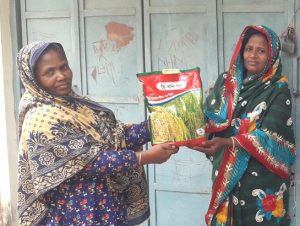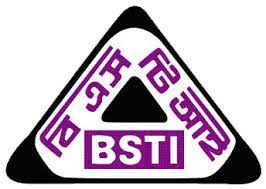GreenWatch Report
September 19, Dhaka: Speakers at a training workshop in Dhaka on Tuesday underscored the need for a balanced approach to meet the food security needs of Bangladesh.The inauguration of the training workshop was held at the BIAM Foundation auditorium in Dhaka city. The workshop aims to increase the analytical capacity of the select government officials thus enabling them to make more effective and efficient food policy decisions and contribute to food policy formulation.
The Integrated Food Policy Research Program (IFPRP) jointly implemented by International Food Policy Research Institute (IFPRI), Bangladesh Institution of Development Studies (BIDS) and University of Illinois has organized the 5-day long training workshop for select mid-level government officials of Ministry of Food and Directorate General of Food.
Kazi Ali Toufique, Acting Director General of Bangladesh Institute of Development Studies (BIDS) who presented the keynote address at the function underscored the need for a balanced approach to food security and said that alternate food intake could increase food security and also ensure nutrition diversity for all.
The 5-day training was inaugurated by MMsShameema Sultana, Additional Secretary for Ministry of Food with Mr. Ariful Rahman Apu, Additional Director General of Food, in the chair.
In his welcome remarks, Dr. Shahidur Rashid, Senior Research Fellow of International Food Policy Research Institute (IFPRI) talked about the ongoing food crisis and said that additional training will enable the policymakers and policy implementers to better manage food stocks.
Kazi Ali Toufique said recent surveys showed that poor people took more aquaculture fishes than others due to changed scenario in the supply and availability of fishes. The share of capture fishery has dwindled over the last two decades but these fishes are more rich in micronutients than aquaculture fishes. Thus a balance in the raising of capture fishes and promotion of aquacuture fishes was needed. He said there remains a huge gap in the supply of dairy products. While the demand for milk is being met mostly with imported milk-powder, that of cattle meat is dependent on smuggling of animals from across the border. The supply of bovin population in Bangladesh has fallen from 0.38 per capita to 0.18 per capital in the last few decades, he added.
Dr. Craig Meisner, Senior Research Fellow of International Food Policy Research Institute (IFPRI) in his presentation mentioned that IFPRI has decades of involvement in training for staff in the Ministry of Food in food policy analysis both in-country and abroad. He mentioned that this training will enable the trainees to access the latest economic analysis tools enabling them to make more efficient and effective food policy decisions.
In her speech, Ms. Shameema Sultana, Additional Secretary, Ministry of Food stressed the importance of training for government officials to achieve government’s mandate to establish and adopt an interactive and digitized food management system. She said that technical trainings can enable mid-level policy implementers to contribute to formulate time befitting food policies that will ensure food security of all.
Mr. Ariful Rahman Apu, Additional Director General of Food in his speech highlighted on the activities of food directorate and said that the issue of food security should be looked at from new realities. He said while the price of rice was not incresing in Bangladesh because of scarce supply there remains a huge stock of potatoes which could have been utilised if the people did not hesitate to take it as the main food. Due to food habiit people in most districts of Bangladesh are not interested in taking non-parboiled rice of which the authorities have some stock.
The 5-day training sessions will be conducted by a team of renowned researchers, sector specialists and government officials enabling the trainees to learn about food policy and its implementation from a broader perspective and specifically on food policy, food security and food management issues.
An IFPRI press released says, each training module is designed to provide the trainees a global perspective and also a country context specific perspective to enable the trainees to relate the training to the country context for its better application. The training is also designed to increase collaboration through participatory group works and will access trainees’ performance using a formal evaluation test. This training is of particular interest to the Government of Bangladesh and to the Ministry of Food as the government is making efforts to move to a more interactive and digitized food management system from the traditional food management system that is in place for decades. It is expected to help the government officials to actively contribute to the government’s mission to implement the new digitized food stock management system and also actively contribute to food policy changes.




